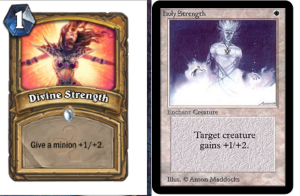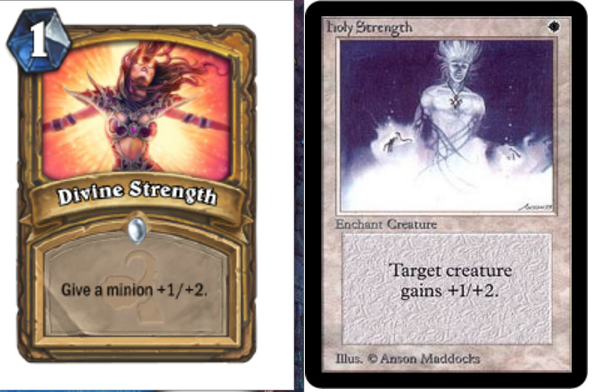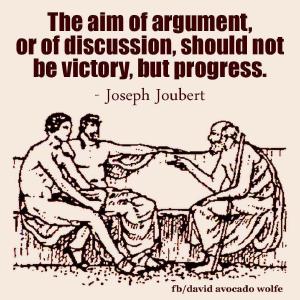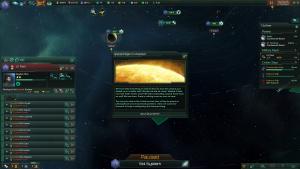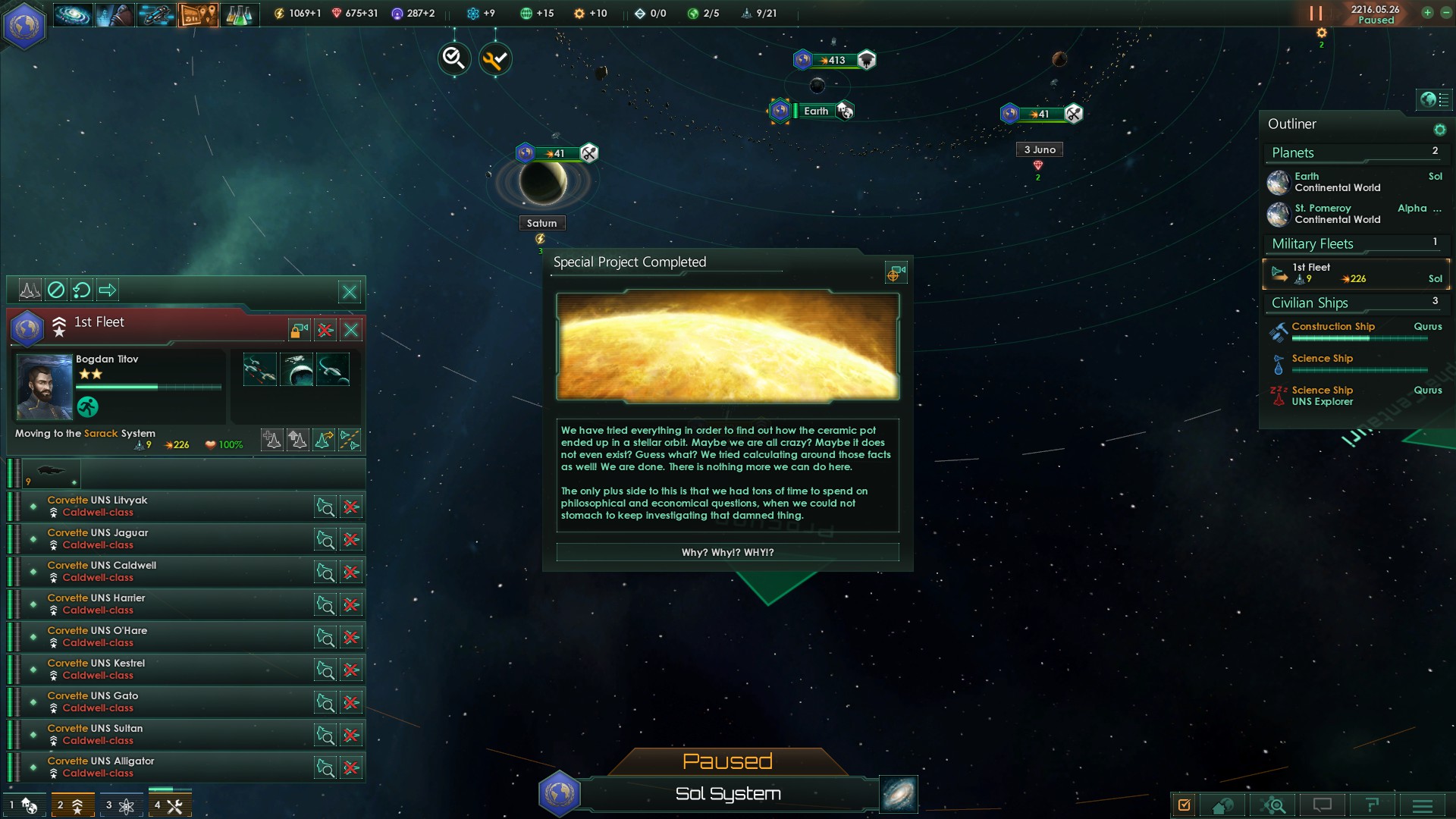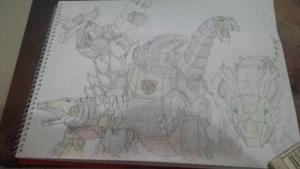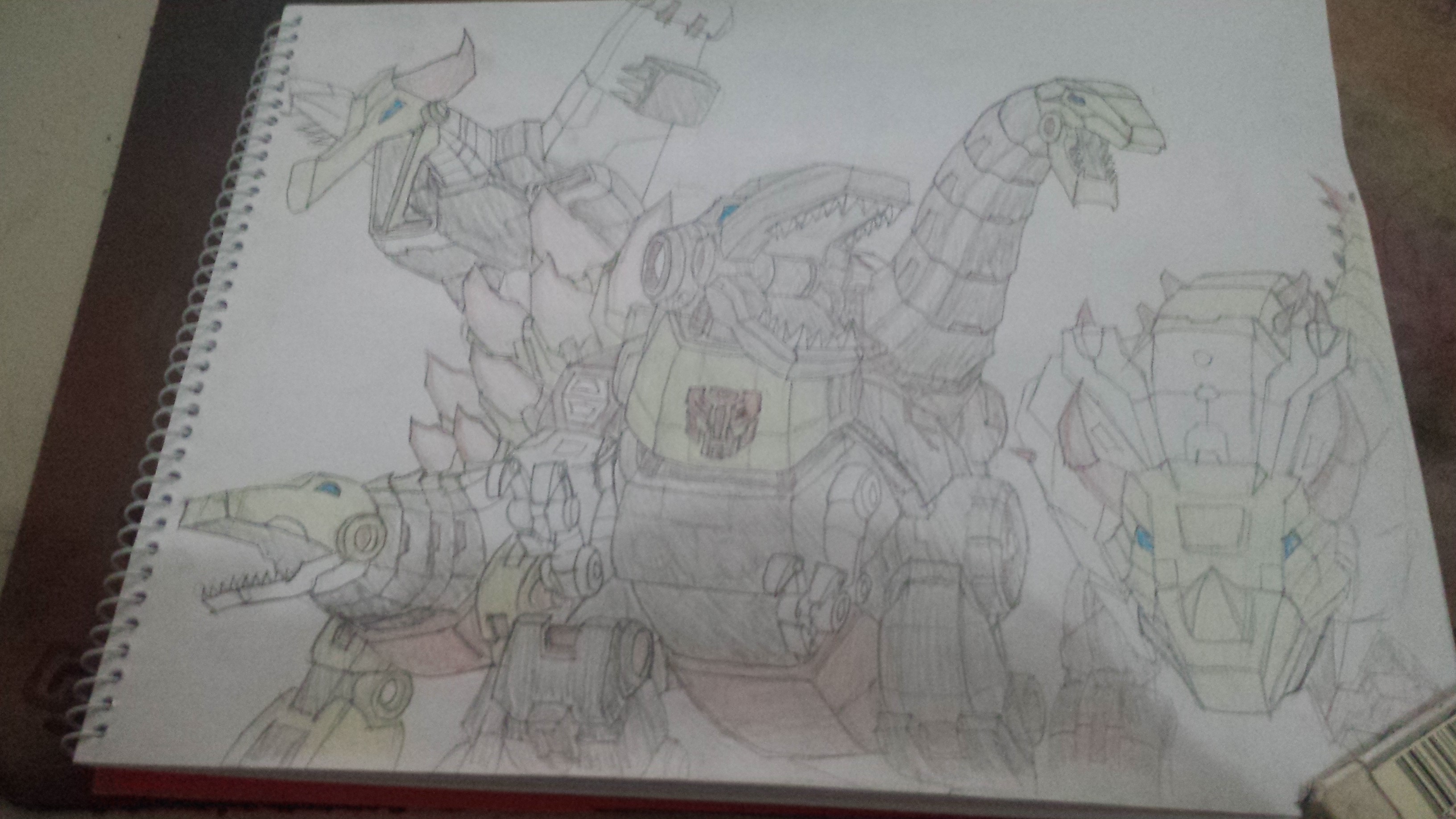Blog: A blog is a website consisting of discrete, often informal diary-style text entries, typically displayed in reverse chronlogical order. A single entry is called a blog post. You can subscribe to an RSS feed of this list.
Aug 2016
-
Pros: It is a very rewarding career financially. Software development often ranks in the top 10 highest-earning careers in most countries There is a lot of scope – you could be developing web applications, mobile applications, embedded applications, client-side, server-side, data analysis, artificial intelligence, games, etc It is very difficult to be bored. You can always automate away the boring stuff. Different projects always present different challenges. The field is evolving rapidly so there are always new things to learn.
-
The Trading Code by Jason Cam My rating: 4 of 5 stars Pretty informative and helpful stuff for beginners to stock trading, although I reckon it will still take time and experience to get the hang of stock trading. I was interested in the math so I’m happy that the book discussed the formulas for most of the indicators used (with the exception of the ADX) View all my reviews
-
Motivation is a fickle mistress. It comes and it goes. It’s easily distracted. It can vanish in a blink of an eye. When it’s there, it’s great, but when it’s not you don’t get anything done and you don’t feel terrible. Motivation is based on the principle that you need a certain emotion or state of mind to get things done. Motivation is burst damage, you can get a lot done but you don’t know when it’s gonna come out.
Jul 2016
-
Evaluation of programmer performance is notoriously hard. You want to be accurate and at the same time fair such that all programmers on your staff are evaluated in the same matter. However, there are no good, objective, universally accepted standard metrics. It follows from the fact that there are no good, objective, universally accepted standard metrics for program size. Typically each programmer in a team will not be doing the same task or even the same type of task, so in order to produce fair evaluations you will need some standard metric of program size to normalize any evaluation.
-
When blogging and social media started to explode in popularity, it held a great promise: it would give a voice to the masses. Where previously there were gatekeepers in traditional media channels who controlled whose opinions could be published or broadcast, the internet meant that anyone with an internet connection could publish and voice out their thoughts and people would be all smart and there would be lots of intelligent discussion and it would be great.
-
****Since I wasn’t a graduate of computer science, there were many concepts of software development I really only got exposed to when I started working. One of those was the concept of a relational database, and hence SQL. The company I worked at gave all new hires a training regimen that started with about a week of SQL. Despite not knowing anything about it beforehand, I took to it like a mouse takes to cheese.
-
I found this draft blog post that I had written back in 2010. I’m not sure why I never published it, though it does end on a dire note and seems a bit incomplete. Perhaps I had some further thoughts percolating in my brain back then that never came forward. I am also not sure if I wrote this before reading about The Great Filter. I figured I’d just publish it now without further comment:
-
I never really put much stock in certifications. I felt that they were no guarantee of knowledge or expertise, and that many people who did have knowledge or expertise wouldn’t necessarily have a certification to say so. Add to that it often seem overpriced to even apply for the certifications, so I didn’t have a high opinion of them. That being said, I have had the opportunity to take professional certification exams twice in my life (both luckily paid for by my employer at that time).
-
During my the first semester of my second year in University, I failed four out of five classes I was taking due to slacking off a lot. Those same classes were only available during the first semester of each year, which meant I could not retake them during the second semester or over the summer to catch up. So effectively, I had fallen one year behind everyone I knew. When I got the news, it was devastating.
-
A friend of mine had an informal consultation with me the other day (read: asked me questions over FB messenger) about what their IT staff was telling them about a file upload vulnerability that had been recently exploited in one of their applications. Obviously it was difficult for me to judge given that I didn’t know all the details, but for me it was most likely a vulnerability introduced in the application code itself.
-
During my adult life, I’ve tried to learn or at least expose myself to one new skill or programming language every year. For example, over the past year or so I’ve been studying, dabbling, or trying out the following: game development using Unity, technical analysis of stocks, Spanish, driving a car, and even some simple cooking! I’ve also been regularly practicing to improve my skills in writing and sketching. I probably even forgot a few things I’ve tried to learn.
Jun 2016
-
Some time ago, one of my many intrepid followers pointed out that this blog tested poorly on web page performance according to this Speed Testing Tool. Now, I’m of the opinion that for a personal blog such as this, web performance isn’t really a mission-critical sort of thing, but as a software developer who has often had to work hard to optimize the web applications we delivered to our clients, it kind of became a matter of pride :p
-
-
I read an article recently about how we should encourage entrepreneurial spirit in kids from a very young age. It made think of a time when we were kids and we tried running a business It was a summer from years ago. Perhaps 1988 or 1989, or maybe a year or two earlier, I can’t be sure. I was young, my brother was younger by a few years, my female cousin older by a few years.
-
I had my first taste with working with software testers during my first project where I was involved with porting an old system to a new version of the software. My first task involved porting reports which were to be generated by the users then printed out. The task wasn’t too difficult: basically you took the source code of the report (it was some weird binary format recognized only by the particular reporting tool – that was how it was done back in the day) and open it using the newer version of the tool, and the tool did some sort of migration magic to adapt it to the new format, then you just save it back again.
-
Grammar note: “Biased” is an adjective. “Bias” is a noun. It is not appropriate to say that a person or an entity “is bias”. Unless you are talking to like a prejudice elemental or something (takes note of that for hypothetical hipster RPG) In a (long-winded) discussion during the recent election period, someone told me that I “obviously had a bias” and my answer was “Of course I do! Everyone does!
-
In the modern era of online services and applications, it is getting more and more common to hear of databases and systems being hacked and user data being exposed. The most dangerous of this data is the user’s password since it may allow access not only to your own service but to other services as well. As an application developer, the below is probably the bare minimum you need to know when handling user passwords:
-
Around the first week of June 2016, Mark Zuckerberg, well-known nerd and founder of Facebook, was hacked. If even the founder of the world’s largest social network can be hacked, anybody can! So it might be a good idea to review how you manage and secure your online passwords **Avoid using short, simple, or commonly-used passwords! **These are subject to so-called “brute force” attacks where bad actors just try a whole lot of passwords until they find one that works.
-
More stories from the early days. Evaluating someone’s programming ability is hard, especially someone fresh out of college. A student’s grades is in no way indicative of how well he can program after all. So most nontrivial programming jobs have some sort of complicated application process involved. I remember going in and taking an exam. Most application processes will have some sort of written exam to filter out people who look good on paper, but can’t actually do anything.
-
“Do you know what’s there, waiting beyond that beach? Immortality! Take it! It’s yours!” – Achilles, Troy Each person has a different view of what their life’s purpose is, but I’ve found more often than not it relates to some form of immortality. Usually that means leaving something behind, some trace of yourself so that the world remembers you, something that says “I was here, I existed.” For many people that means offspring, for others it may mean some other legacy: children taught, people helped, ideas expounded, inventions created, companies founded, and so on
-
-
I once had to advise someone who found himself irritated at receiving lots of comments during code review. I think my response was good enough to quote verbatim: Remember: You are not your code. You are not the hundred or so lines of C or Java or JavaScript or whatever that you wrote today. This problem arises because you are too attached to your code. Your ego is associated with the code you write and you feel that any comments or defects found reflect upon you as a person.
May 2016
-
Totally different yo (Click to view full-size) Totally different yo 31 May 2016 7:49amClose I am of course a long-time Magic the Gathering player. Over the past year or so I’ve also been playing Blizzard’s digital CCG Hearthstone (limiting myself to free to play since who has money to spend on two CCGs?) and I’ve been thinking about the design parallels and differences between the two.
-
A while back I answered a question over on Quora about how I got started down the path of programming. It’s not a particularly interesting story, but I still thought I’d record it here for posterity. Sometime when I was much younger, maybe somewhere between twelve to fourteen years old, I remember having some sort of QBasic programming learning book at home. I forget how we got it, I think my uncle brought it home for me sometime for some reason.
-
The Making of Karateka by Jordan Mechner My rating: 4 of 5 stars The book is literally a collection of journal entries detailing young Jordan Mechner’s days as a university student at Yale at the same time working on what would be his first published game. I found it both inspiring (though some might consider me the wrong age to be inspired by it) and amusing as a look into the life of a young man in the early 80s.
-
Relevant XKCD: Sometimes I have this inexplicable urge to argue with people. With recent events I’ve found myself getting into more discussions, debates and otherwise friendly arguments online. The quality of these interactions hasn’t always been the best, and many times I feel like I should have stopped engaging sooner or maybe not participated at all. I’ve considered some points to help me decide in the future whether to bother engaging other people online.
-
Mindfire: Big Ideas for Curious Minds by Scott Berkun My rating: 4 of 5 stars I’ve been following and reading Scott Berkun’s blog on and off for the past 5 years or so, so I already have a passing familiarity with this work. Mindfire collects some of the best essays from his blog into an easy-to-read format that you can digest in one-to-two sittings. Berkun writes about a number of diverse topics such as how to think critically and how to interact with other people and how to spend your attention.
-
"Everyone knows the third movie is always the worst" -- Jean still too much focus on Jennifer Lawrence/Mystique some great soundtrack choices Quicksilver scene maybe just a tiny bit too long. Tradition of defying the rules of physics continues (I hope someone does the math on how fast he was probably moving) nice 80s wardrobe lol not particularly faithful to the source material plot is all over the place, a lot of WTF moments here and there.
-
Or “How Did A Ceramic Pot End Up In Stellar Orbit”? (Click to view full-size) 18 May 2016 11:55pmClose Stellaris is a 4x space strategy game available on Steam. The game is created by Paradox, well-known for a number of other grand strategy games mostly with a historical basis such as Crusader Kings. I’ve owned Crusader Kings II for a while now but never got into it too deeply because (a) it’s just a bit too overwhelming; and (b) I find the combat way too obtruse.
-
“The price for being the best is always having to be the best”
-
We shouldn’t have to keep telling people that Ferdinand Marcos was a terrible president and that the Martial Law he imposed was terrible for the country. Imagine if a significant percentage of German citizens kept insisting that Hitler was a great man and the more sensible Germans had to keep trying to educate them on why that wasn’t true and why World War II was a terrible idea and that they wanted to elect Hitler’s descendant to a position of national prominence.
-
Cat’s Cradle by Kurt Vonnegut My rating: 5 of 5 stars Cat’s Cradle is only the second Vonnegut book I’ve read, after Slaughterhouse Five. I find myself fascinated with how he unveils his narrative in short, seemingly disconnected bursts, something much more obvious in this book. Like S5, CC’s plot starts close to normal ordinary fiction and ends in a completely different place that’s strictly in the realm of sci-fi. A great read, and very easy too given the structure of ridiculously short chapters View all my reviews
-
This has been one of the most divisive and shenanigan-filled election campaign seasons ever, and politics is normally crazy in this country so that’s saying something. There’s a strong use of social media this time around, and it’s led to the internet being a hotbed of opinions and propaganda and memes and lies and half-truths and threats of violence. I was hoping greater citizen involvement via social media and the debates would mean citizens have more information and thus would get to be more discerning, but it seems that things have only gotten worse.
Apr 2016
-
Commentary thread for 3rd presidential debate (consolidated). [19:17] Dapat magtaas kamay na lang si Miriam at humingi ng enerhiya sa taong bayan para sa genki dama [19:35] Bakit pa ba umaattend ng debate etong si Binay? Ni hindi sinasagot ang tinatanong sa kanya #PiliPinasDebates2016 [19:44] Panalo, quinote si Batman! [20:19] Babawasan mga tax, pero andaming mga planong transportation at libreng healthcare [20:31] Looking forward to the pro roxas crowd posting about davao philheath beneficiaries at 8am tomorrow
-
The Catcher in the Rye by J.D. Salinger My rating: 2 of 5 stars This book was painful to read really. I might have received it better had I read it when I was younger, but reading it now, Holden just feels like this whiny entitled angry kid that has no idea what he’s doing or how the world works. The story doesn’t really go anywhere interesting; I understand that it’s not that kind of book, but what it is doesn’t really appeal to me too much.
-
[2021.04.08] This was originally a huge reddit thread where I had more than 100 comments, which resulted in so many posts to this site. I decided to merge most of the top level content into this large single post. Posted on r/Philippines: 2016 Senatorial Candidates Information Megathread Hello /r/Philippines! As we all know, the presidential and vice-presidential races are quite controversial and getting a lot of attention. This leads to the Senate race getting less attention and comparably less information is available about the senatorial candidates.
-
Surely You’re Joking, Mr. Feynman!: Adventures of a Curious Character by Richard P. Feynman My rating: 5 of 5 stars After reading this book, I’m quite envious of Feynman’s life haha. He’s lived a very interesting life and the stories are told with a general down-to-earth tone despite the fact that he often has to explain the math and theoretical physics which may be less accessible for laymen. For science-oriented people, this may be one of the best biographies to read View all my reviews
-
Commentary thread for the vice presidential debate today [18:55] Leni doing well. Calm, composed yet striking hard. Marcos following Binay strategy: deny deny deny #vpdebates [19:05] Apc asking opponents for a plan but when asked to elaborate on their plans: gagalingan lang namin [19:09] Omg this debate. So many savage burns [19:12] APC really hates BBM. Sya kasi ang kaagaw sa duterte supporters [19:15] So far APC, Trillianes, Leni doing well.
-
A Briefer History of Time by Stephen Hawking My rating: 5 of 5 stars I’ve restarted reading this book (and the original) a few times since I was still in school. In fact, when I opened my iBooks copy that I’ve left alone over the past few years, it was at around halfway through. I started over again and managed to finish it this time. Not sure why I had trouble finishing it before, it’s a fairly short book and the subject matter is interesting to anyone who has even a passing interest in science.
Mar 2016
-
Perdido Street Station by China Miéville My rating: 3 of 5 stars Perdido Street Station is a difficult book to read, which is why it took me a lot of time to get through it (and this was my second attempt too! I had to restart because I did not even get very far the last time and did not retain anything). Not because the plot is convoluted or anything like that.
-
I’ve had a bit more free time recently, and I’ve been filling that time by starting up some hobbies (some old, some new). One of them has been sketching. I’ve been drawing things for as long as I remember – I have elementary and high school notebooks with more doodles and x-men drawings than there are notes. And even at work, I often find other meeting participants checking out the random sketches I had been absently doing while other people were speaking.
-
John Dies at the End by David Wong My rating: 3 of 5 stars 2016 book #12: John Dies at the End by David Wong. This book is all kinds of weird. It’s a bit like the author tried to think of as many weird things as he possible could then ties them together with an impossible plot that he doesn’t even fully resolved. It’s like the author was on crack while he was writing most of this (apt, since he’s apparently and editor at cracked.
-
The 4-Hour Workweek by Timothy Ferriss My rating: 3 of 5 stars 2016 Book #11: The Four Hour Work Week by Tim Ferris. Pros: - useful tips on reducing unnecessary work, remote working, automation, travel tips, etc Cons: - not for anyone who dislikes lying to people or some other form of “salesmanship" - not for anyone who doesn’t have an idea for something to sell that can be easily mass-manufactured and distributed to the potential buyers
Feb 2016
-
Guns, Germs, and Steel: The Fates of Human Societies by Jared Diamond My rating: 3 of 5 stars 2016 Book #10: Guns, Germs and Steel by Jared Diamond. I actually started this a few years back, thought I’d actually get around to finish it. The book is an analysis of history, of what geographical advantages certain civilizations had that allowed them to triumph over others. He presents a lot of interesting topics covering linguistics, animal/plant domestication and food production that may explain these differences.
-
Harry Potter and the Half-Blood Prince by J.K. Rowling My rating: 5 of 5 stars 2016 Book #8: Harry Potter and the Half-Blood Prince. Someone had already spoiled me ahead of time about the death at the end of this book, although I hadn’t known when it would happen. But it started to become obvious as the book went on, so I wasn’t too surprised by the end. This book fleshes out the back story of the series’ villain Voldemort and finally tries to make Draco Malfoy do something of consequence.
-
Harry Potter and the Deathly Hallows by J.K. Rowling My rating: 5 of 5 stars 2016 Book #9: Harry Potter and the Deathly Hallows. The book starts off with a lot of action before settling into a phase where the three protagonists wander around a lot and sleep in tents and finally into a big showdown at Hogwarts with virtually every character in the series showing up for one big brawl.
-
Harry Potter and the Order of the Phoenix by J.K. Rowling My rating: 3 of 5 stars This is a long book, roughly three times as long as the first Harry Potter book was. That wouldn’t be so bad if it wasn’t so painful to read. Harry here is like a completely different character compared to the previous books, he’s irritable and whiny and keeps worrying about how other people aren’t treating him well.
-
Triumph of the Darksword by Margaret Weis My rating: 3 of 5 stars I read the first two books of this trilogy back in high school, and I recently decided to get a used copy from Amazon. I was pleasantly surprised that I was able to dive into the third book without having to re-read the first two, with a general recollection of the events from the first book still intact.
-
Harry Potter and the Prisoner of Azkaban by J.K. Rowling My rating: 5 of 5 stars The series started off a with rather straightforward stories that made obvious that JK Rowling was new to this business at the time, but Prisoner of Azkaban kicks off the world-building to a larger degree. Many elements of the world are expanded upon and added to and by now we get a better sense of the sort of wonders the world of Harry Potter represents.
Jan 2016
-
(Originally posted on Facebook) Heaven knows we are in need of some serious income tax reform, and the government needs to work a lot on efficient utilization of the revenue they do earn, so of course when I first saw the image below like any middle-class Filipino I found it a bit enraging. But then I thought to myself: if Singapore has such low taxes, where does the government get their operating budget from?




